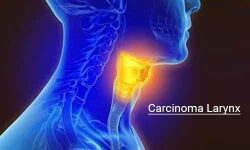- Home
- Medical news & Guidelines
- Anesthesiology
- Cardiology and CTVS
- Critical Care
- Dentistry
- Dermatology
- Diabetes and Endocrinology
- ENT
- Gastroenterology
- Medicine
- Nephrology
- Neurology
- Obstretics-Gynaecology
- Oncology
- Ophthalmology
- Orthopaedics
- Pediatrics-Neonatology
- Psychiatry
- Pulmonology
- Radiology
- Surgery
- Urology
- Laboratory Medicine
- Diet
- Nursing
- Paramedical
- Physiotherapy
- Health news
- Fact Check
- Bone Health Fact Check
- Brain Health Fact Check
- Cancer Related Fact Check
- Child Care Fact Check
- Dental and oral health fact check
- Diabetes and metabolic health fact check
- Diet and Nutrition Fact Check
- Eye and ENT Care Fact Check
- Fitness fact check
- Gut health fact check
- Heart health fact check
- Kidney health fact check
- Medical education fact check
- Men's health fact check
- Respiratory fact check
- Skin and hair care fact check
- Vaccine and Immunization fact check
- Women's health fact check
- AYUSH
- State News
- Andaman and Nicobar Islands
- Andhra Pradesh
- Arunachal Pradesh
- Assam
- Bihar
- Chandigarh
- Chattisgarh
- Dadra and Nagar Haveli
- Daman and Diu
- Delhi
- Goa
- Gujarat
- Haryana
- Himachal Pradesh
- Jammu & Kashmir
- Jharkhand
- Karnataka
- Kerala
- Ladakh
- Lakshadweep
- Madhya Pradesh
- Maharashtra
- Manipur
- Meghalaya
- Mizoram
- Nagaland
- Odisha
- Puducherry
- Punjab
- Rajasthan
- Sikkim
- Tamil Nadu
- Telangana
- Tripura
- Uttar Pradesh
- Uttrakhand
- West Bengal
- Medical Education
- Industry
Tissue-engineered implants provide new hope for vocal injuries

WEST LAFAYETTE, Ind. - New technology from Purdue University and Indiana University School of Medicine innovators may one day help patients who suffer devastating vocal injuries from surgery on the larynx.
A collaborative team consisting of Purdue biomedical engineers and clinicians from IU has tissue-engineered component tissue replacements that support reconstruction of the larynx. The team's work is published in The Laryngoscope.
The larynx is a very complex human organ consisting of outer cartilage for structural support, inner muscle that contracts to permit voicing, swallowing, and breathing, and inner vibratory lining.
Currently, thousands of patients each year with laryngeal cancer or trauma require a procedure called total laryngectomy in which the entire larynx is removed, and patients are left without a human voice and breathing through a hole in their neck called a stoma.
"There are very few options for laryngeal reconstruction and no options for restoration of laryngeal appearance, structure and function," said Stacey Halum, a fellowship-trained laryngologist specializing in head and neck surgery. "While surgeons occasionally use local or free tissue transfers to repair laryngeal defects, these local or regional tissues just 'plug holes' or close the defects without really restoring function because the transferred tissues are not dynamic - they do not move or contract. They also tend to lose bulk and scar over time."
Halum, along with p a professor in Purdue's Weldon School of Biomedical Engineering, led the innovation team.
The innovators used a patented collagen polymer developed by Harbin's lab to fabricate the three regenerative replacement tissues for the laryngeal reconstruction procedure.
"Our approach is unique in that we are using customized engineered tissue replacements, with the muscle component fabricated using the patient's own muscle progenitor cells," Harbin said. "We believe these engineering approaches will provide patients with better options for reconstruction so that total laryngectomies become something of the past."
Harbin and Halum believe the technology has widespread applications for custom fabrication of engineered tissue replacements for tissue restoration in other parts of the body.
Harbin founded GeniPhys, a Purdue startup focused on the commercialization of the collagen polymer technology.
Hina Zahid Joined Medical Dialogue in 2017 with a passion to work as a Reporter. She coordinates with various national and international journals and association and covers all the stories related to Medical guidelines, Medical Journals, rare medical surgeries as well as all the updates in the medical field. Email: editorial@medicaldialogues.in. Contact no. 011-43720751
Dr Kamal Kant Kohli-MBBS, DTCD- a chest specialist with more than 30 years of practice and a flair for writing clinical articles, Dr Kamal Kant Kohli joined Medical Dialogues as a Chief Editor of Medical News. Besides writing articles, as an editor, he proofreads and verifies all the medical content published on Medical Dialogues including those coming from journals, studies,medical conferences,guidelines etc. Email: drkohli@medicaldialogues.in. Contact no. 011-43720751


